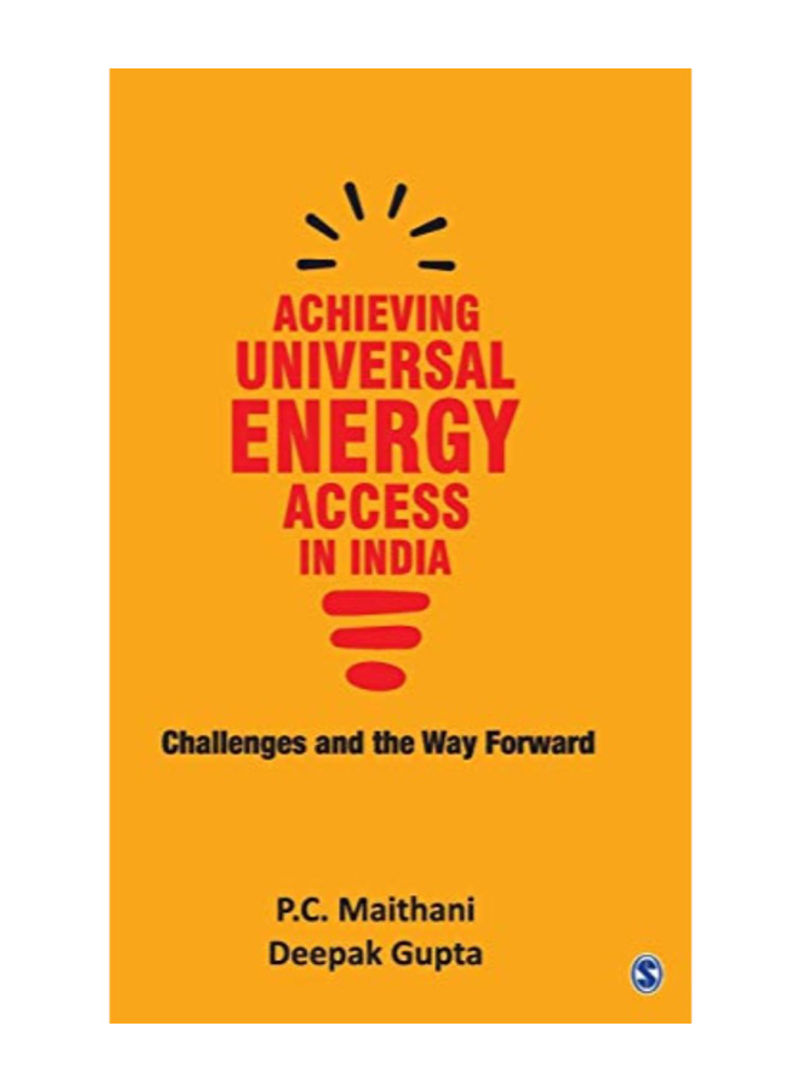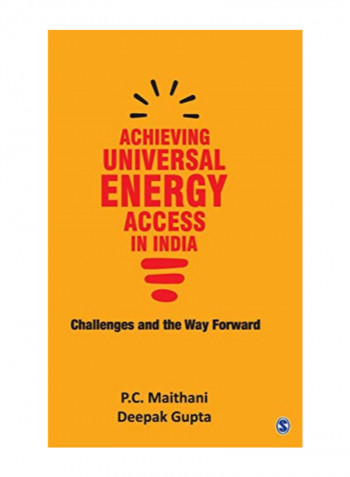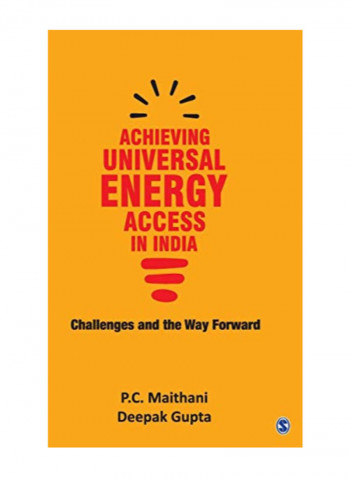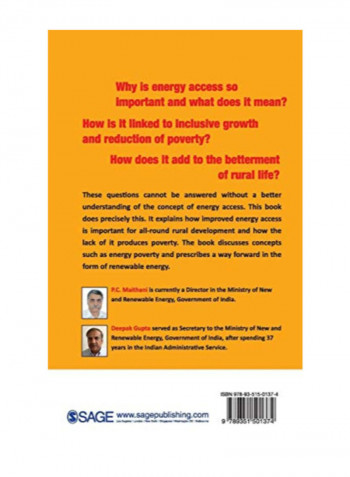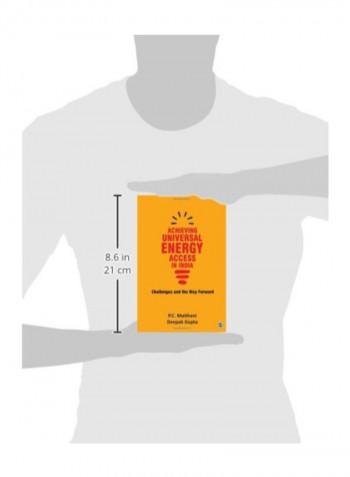Achieving Universal Energy Access In India: Challenges And The Way Forward Hardcover
Recommend
Sort by
Rating
Date
Specifications
Author 1
P C Maithani
Book Description
Forty-five per cent of India's rural population is without electricity and over 85 per cent is dependent on biomass to meet its cooking needs. Projections suggest that if the present trends continue, a large section of India's rural population will remain without access to modern energy services even in 2030. It also follows that energy access is not only a critical component for reducing rural poverty and drudgery but it is also one of the fundamental conditions for holistic rural development. The book takes a critical look at the present energy policy and addresses ways to improve energy penetration. In doing so it encourages the use of renewable energy as an alternate medium, challenging the traditional power proponents.
ISBN-13
9789351501374
Language
English
Publisher
Sage Publisher
Number of Pages
296
About the Author
P.C. Maithani is currently working as Director in the Ministry of New and Renewable Energy. During his professional career, he has worked on different aspects of renewable energy programmes and policies. Dr Maithani was Visiting Fellow with TERI for a year in 2006 and is also Visiting Faculty at TERI University. He holds doctorate in Physics from HNB Garhwal University and Post Graduate Diploma in Public Policy and Management from Indian Institute of Management, Bangalore. He has contributed many papers and articles and authored a book Renewable Energy in the Global Context.Deepak Gupta served as Secretary to the Ministry of New and Renewable Energy, Government of India, from 1 July 2008 to 30 September 2011. He was instrumental in the launching of India's ambitious national Solar Mission. He belongs to the 1974 batch of the Indian Administrative Service (IAS). A postgraduate in History from St Stephen's College and MPhil in International Relations from Jawaharlal Nehru University, he did a Masters in Public Administration from the Kennedy School, Harvard University, in 1992 as a Mason Fellow. He has worked in different areas in the central and state governments, including a deputation to India Trade Centre, Brussels, in the eighties. He has also served as Adviser with the World Health Organization in Delhi in 2004 for TB. He has extensively worked on rural energy issues and had designed programmes for achieving universal energy assess. He has consulted for ECOWAS (West African group of countries), World Bank and Rural Livelihoods Programme of Government of India for renewable energy and energy access after retirement. He was invited as expert in international conferences on energy access. He also authored two books related to his earlier assignments - Covering a Billion with DOTS and A Documentary Study of Participatory Irrigation Management.Deepak Gupta served as Secretary to the Ministry of New and Renewable Energy, Government of India, from 1 July 2008 to 30 September 2011. He was instrumental in the launching of India's ambitious national Solar Mission. He belongs to the 1974 batch of the Indian Administrative Service (IAS). A postgraduate in History from St Stephen's College and MPhil in International Relations from Jawaharlal Nehru University, he did a Masters in Public Administration from the Kennedy School, Harvard University, in 1992 as a Mason Fellow. He has worked in different areas in the central and state governments, including a deputation to India Trade Centre, Brussels, in the eighties. He has also served as Adviser with the World Health Organization in Delhi in 2004 for TB. He has extensively worked on rural energy issues and had designed programmes for achieving universal energy assess. He has consulted for ECOWAS (West African group of countries), World Bank and Rural Livelihoods Programme of Government of India for renewable energy and energy access after retirement. He was invited as expert in international conferences on energy access. He also authored two books related to his earlier assignments - Covering a Billion with DOTS and A Documentary Study of Participatory Irrigation Management.
Editorial Review
If you are looking for a definitive, fairly complete text on India’s energy problems with illustrative background stories of successes and failures (not just anecdotal case studies), strong technical solutions and policy recommendations, you would do very well and save a huge amount of time to start with this scholarly publication.
